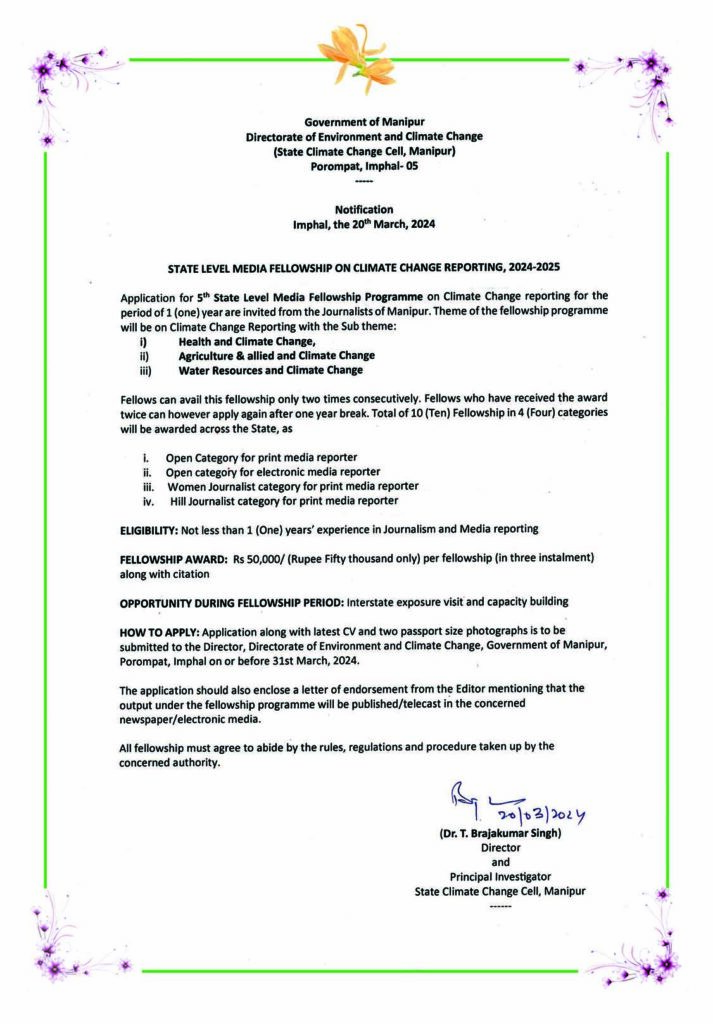For whatever its reason, the ruling BJP was the last among the major parties in contention in the forthcoming elections to the 12th Manipur Legislative Assembly to release its election manifesto. It was also the last to announce its list of candidates for the 60-member house. For a party in power in the state and at the Centre, therefore the strongest contender, this is rather intriguing, but the answers are not entirely impossible to fathom.
Both of these events betray certain inherent problems in the party. First is of overweight on account of a spree of encouraged defection from other parties to swell its ranks leading to the unenviable situation of several candidates fighting for each of the party’s 60 tickets. The second has to do with the state BJP’s lack of autonomy from the party’s central command in taking decisions even on local issues.
Since the second issue of delayed manifesto is more recent, the document having been released only on February 17, just 11 days short of the first of the two-phase polling on February 28, it deserves a closer look first. The second phase polling is on March 5.
Following the botch ambush on December 4 near Oting village in Nagaland’s Mon district by Army para commandos based in Jorhat, leaving 14 civilians dead, demands for the repeal of the Armed Forces Special Powers Act 1958, a draconian act reviled across the Northeast, returned from a longish hibernation explosively.
The Central government however indicated strongly it would not concede to the popular demand. By a Supreme Court directive, the act requires review every six months, and in Nagaland, amidst the Oting outrage, AFSPA’s last lease was due to lapse. Despite a unanimous decision of the Nagaland Assembly to stand against further extension of the act, the Centre intervened to extend Nagaland’s disturbed area status and with it the AFSPA for another six months from December 30.
In Manipur interestingly the last extension of AFSPA lapsed on November 30, but probably not wanting to annoy the public ahead of the election, the state government pretended amnesia and did nothing. Oting and its aftermath made this all the more sensitive, but the state’s BJP government saw what the Centre did in Nagaland. Probably instructions also came to it directly from the party high command to do the needful, and on January 8, a month and eight days after it lapsed, Manipur government decided to extend the state’s disturbed area status and AFSPA.
Quite atrociously this extension was with retrospective effect from December 1, and in disregard of a Supreme Court’s recommendation for six-monthly reviews, the extension was for one year. Legal experts are of the opinion the retrospective extension of any law is untenable and goes against Article 20(1) of the Constitution. They also point out this is a very bad precedent, for now a person can be convicted for any act perfectly legal at the time of their commission, by making a law that prohibits it and then retrospectively applying it.
Unfortunately for the state BJP, this was about the time other political were releasing their election manifestos, and all of them responded to the popular sentiment and promised to campaign to have the AFSPA repealed. Quite obviously the state BJP was in a quandary for it had just a week or so ago extended the AFSPA in anticipation of what the party’s central command would want, and therefore could not with any sense of sanity say it stood against the AFSPA.
In the week before the BJP manifesto was released, state party leaders including the chief minister, N. Biren tried to soften public attitude, saying his government too, if it returns, will ultimately try and convince the Centre that the AFSPA should be repealed but for now such a move was not appropriate.
Sure enough, when the BJP manifesto was finally released, the single sheeter declaration was completely silent on AFSPA. As to whether this will impact the BJP’s electoral prospect is not so straightforward, for in Manipur and the Northeast, gut level politics and electoral politics work on different planes. This was also demonstrated during the protest against the Citizenship Amendment Act. Assam and Manipur vehemently opposed it, still a majority in both states voted for the party which moved it.
Interestingly, the rather brief manifesto made it to most newspapers in the state as full front page colour advertisement. It is replete with sops and freebies, such as promises for awards of laptops and mopeds for meritorious students, without however specifying how many students at the top end of public competitions who would be eligible for these awards.
The answer to the other puzzle of delayed announcement of candidates of the BJP is now public. At its core was a hubris which blinded the party to certain flaws in itself. To all disinterested observers, it came as a surprise that the BJP missed the point that all the pollical turncoats who shifted political affiliation to it would have little interest in ideology, and what actually gravitated them to the ruling dispensation was the lure of power alone. Most of these turncoats were from the Congress too. Refusing to see this undercurrent, the state BJP instead continued flaunting this in its report card to the party high command that it was contributing its mite to the effort to erase the Congress from the country.
As witnessed, most of the important turncoats from the Congress ended up supplanting original BJP adherents in the contest for BJP tickets, creating chaos and outward migration of BJP politicians and workers to other parties when the BJP ticket list was finally announced on January 30. Whether this splintering of BJP vote bank will be enough to deprive the party of its electoral advantage as the ruling party will only be known on March 10 when the results are declared.
This article was first published in The New Indian Express. The original story can be read here










